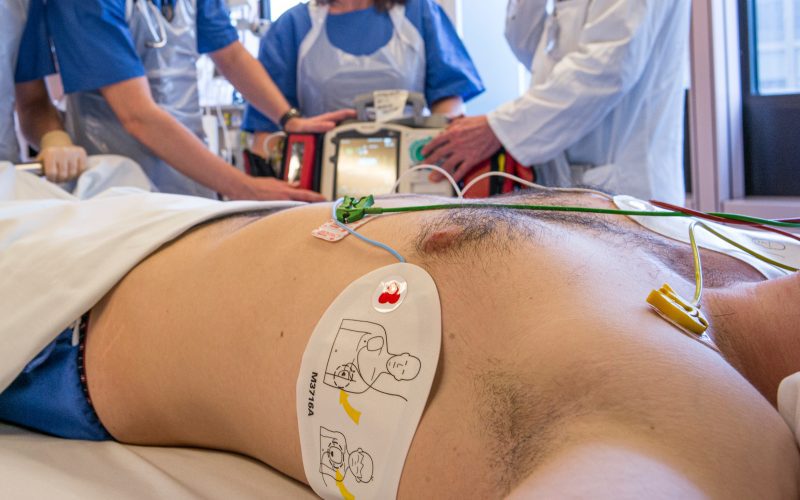Healthcare can be a complex and overwhelming journey, especially for patients who are dealing with serious illnesses or chronic conditions. That’s where patient advocacy comes in – a powerful tool that can transform the healthcare experience for patients and their families. Patient advocates work tirelessly to ensure that patients receive the best possible care, support and resources they need to navigate the healthcare system. In this blog post, we’ll explore what patient advocacy is all about, its benefits, and how it differs from patient navigation. Join us as we dive into the world of patient advocacy and discover how it’s changing healthcare for the better!
What is patient advocacy?
Patient advocacy is a term used to describe the process of supporting and empowering patients who are navigating healthcare systems. Essentially, patient advocates act as liaisons between patients and healthcare providers to help ensure that the needs of the patient are being met.
One of the primary goals of patient advocacy is to provide support for patients who may feel overwhelmed or confused by their medical circumstances. This can involve everything from helping them understand their diagnosis and treatment options, to providing emotional support during difficult times.
Patient advocates also work to protect the rights of patients within healthcare settings. They may help patients navigate complex health insurance policies, ensure that they receive timely access to necessary medications and treatments, or advocate on behalf of those with disabilities or other special needs.
Patient advocacy plays a critical role in ensuring that patients receive high-quality care that meets their unique needs. By providing compassionate guidance and support throughout the healthcare journey, patient advocates empower individuals to take control of their health outcomes and achieve better overall well-being.
The benefits of patient advocacy
Patient advocacy is an essential practice that benefits both patients and healthcare providers. By empowering patients to take control of their health, patient advocates can help improve the quality of care patients receive.
One significant benefit of patient advocacy is that it helps ensure that patients receive a proper diagnosis and appropriate treatment. Patient advocates work closely with medical professionals to make sure doctors have all the necessary information about a patient’s symptoms, medical history, and personal preferences.
Another advantage of patient advocacy is that it helps reduce healthcare costs for patients. By working with insurance companies to cover treatment costs or finding more affordable alternatives, patient advocates can ease financial burdens on families.
Patient advocacy also promotes better communication between healthcare providers and their patients. Advocates serve as intermediaries who translate complex medical jargon into understandable terms for patients while ensuring providers listen carefully to their clients’ concerns.
By providing emotional support for individuals navigating through often-complicated health systems, educating them about available resources and increasing access to care options in underserved areas – these are just some examples where having a dedicated advocate can transform someone’s experience with healthcare delivery entirely.
The difference between patient advocates and patient navigators
Patient advocacy and patient navigation can be easily confused, but they are not the same thing. Patient advocates work to promote the rights of patients while navigating through a complex healthcare system. They help patients understand their health condition and treatment options, as well as assisting them in communicating with healthcare providers.
Patient navigators, on the other hand, focus more on organizational aspects of healthcare systems. They guide patients through specific medical processes such as appointments or insurance claims. Navigators often work within hospitals or cancer centers and may have specialized training in particular disease areas.
While there is some overlap between these roles, it’s important to recognize their distinct differences. Patient advocates are usually independent professionals who provide personalized support for a broader range of issues that affect patient care beyond just logistics.
In contrast, patient navigators tend to work within larger organizations where they serve more focused logistical purposes. However, both roles aim at empowering individuals by providing education and guidance throughout the healthcare journey.
By understanding these differences between patient advocacy and navigation services, individuals can better access resources that meet their unique needs when seeking medical attention.
Conclusion
Patient advocacy is a powerful tool that can transform healthcare by empowering patients to take control of their health and advocate for themselves. Patient advocates play an important role in this process by providing support, guidance, and resources to help patients navigate the complex healthcare system.
By working with patient advocates, patients can gain access to the information they need to make informed decisions about their health and treatment options. They can also learn how to communicate effectively with healthcare providers and insurance companies, ensuring that they receive the care they need when they need it.
Ultimately, patient advocacy has the potential to improve healthcare outcomes for everyone involved: patients, providers, insurers, and society as a whole. By prioritizing patient empowerment through advocacy efforts at all levels of the healthcare system—from individual interactions between patients and providers to policy changes at national levels—we have an opportunity to create a more equitable and effective system that meets everyone’s needs.











